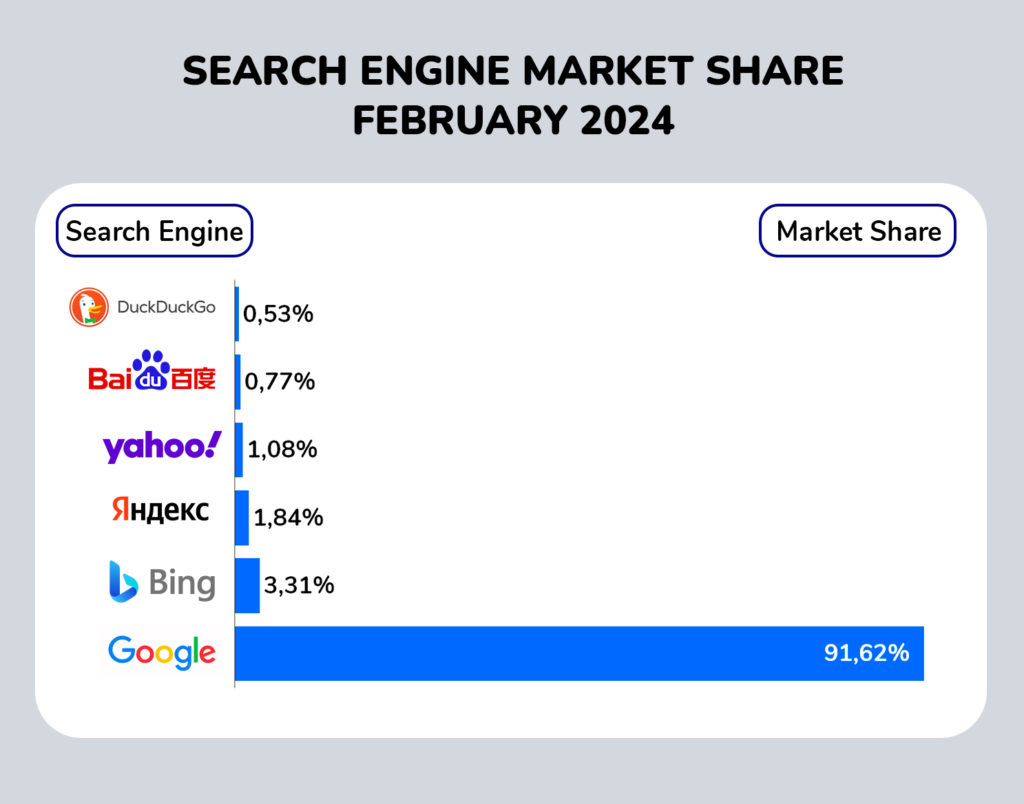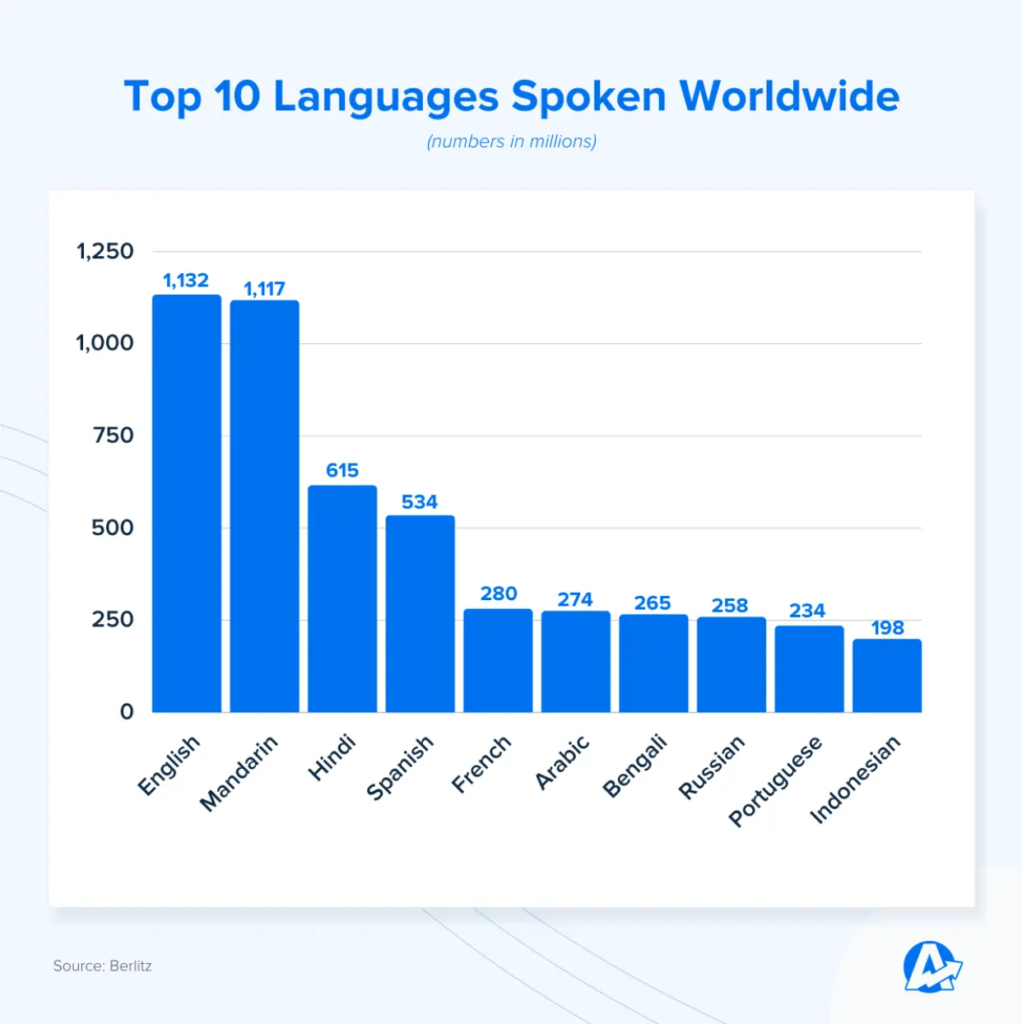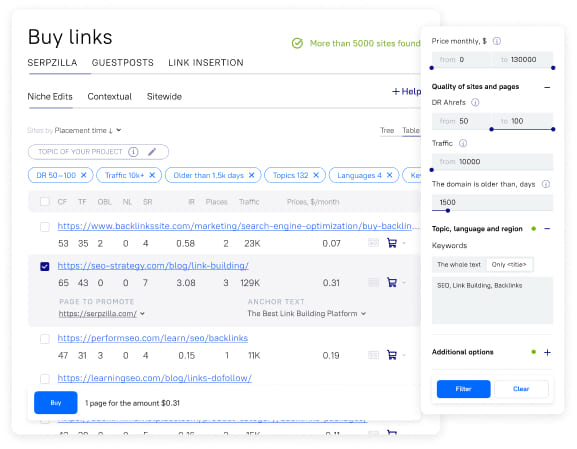What is international SEO? Why is the geographical factor important for SEO and when is it important? Do I need to follow best practices for local or for international SEO? These are all valid questions that SEO marketers need to address regardless of their experience. In this article, we will speak about international SEO: when do you need to focus on it, what are its specifics and how to know you’re doing it right. Let’s dive right in.
What Is International SEO and Why Is It Important?
International SEO when you optimize your website in such a way that search engines can easily identify the countries you want to target and the languages you use for business. You definitely need it if you want to reach a global audience and make sure that your content is accessible and relevant to users across different regions. Unlike regular SEO which usually focuses on a single language or geographical market, international SEO involves a strategy that lets you cover multiple markets and languages simultaneously.
Here are some prominent reasons why international SEO is a necessity if you’re trying to reach the global market:
- It helps increase your visibility in search engines across different regions. These can also be quite different search engines!
- Drive more organic traffic from diverse geographical areas where traffic attraction may follow different rules.
- Enhance user experience by providing content localized and adapted to specific regions and languages.
- Stay competitive in the global marketplace by reaching potential customers where they are.
International SEO Best Practices: 7 Steps for Going Global Organically
1. Define International Markets
Identify which countries and regions you want to target. You have to pay very close attention to market specifics. For instance, Google is not the search engine the majority of people use in countries like China, where Baidu takes the lead, or South Korea where they prefer Naver. This means, optimizing for these countries will have some significant differences.

2. Keyword Research
Your keyword research must be specific to each target market. It’s best to work with a local expert, as you need to understand the local language nuances and search behavior to select the most relevant keywords for each region.
3. Add Hreflang Accurately
Hreflang tags indicate the language and geographical targeting of a webpage, so it’s important that you use them. This way search engines know exactly which version of your content to show to users in different locations. The graph below illustrates 10 most widely spoken languages of the world. This can give you an idea of which language markets are the biggest.

4. Choose a URL Structure
One thing you need to do early on is to decide between different URL structures for instance, ccTLDs (country-code top-level domains), subdomains, or subdirectories. Each has its pros and cons, and the choice depends on your overall SEO strategy and resources. For instance, subdomains are better for geo targeting and can be independently managed. At the same time, they are big resource eaters and don’t pass as much domain authority as subfolders. Subfolders, on the other hand, are far easier to maintain. Yet, they may not provide as good a division between geographical domains. If you’re targeting markets that are strikingly different, such as the US and China, subfolders may not be the best solution.
5. Observe One Language, One Page Rule
It’s absolutely vital that each page on your site targets only one language. Mixing languages on a single page can create a huge confusion for both search engines and users. Overall, this can even have a negative impact on your SEO.
6. Improve Your Internal Linking
Pages within your website shouldn’t exist separately. A solid internal linking structure performs several important functions. First, it helps your users navigate your site by relevance of topics. It also passes to search engines the importance of different pages.
7. Build Region-Specific Backlinks
Separate your link building into geographical domains and get backlinks from local websites in your target regions for specific pages. These region-specific backlinks enhance your site’s authority and relevance in those markets.
Link Building in International SEO
When you work on an international arena, your link building becomes specifically complicated. You need to take into accounts very many factors and balance them out so that one activity doesn’t contradict another. Here are a few best practices you can follow to make your international SEO link building a successful and less frustrating activity.
1. Key Considerations
Understand the cultural and market-specific nuances of your target regions. For example, you can use the extensive prospect search Serpzilla offers to form several pools of prospects that will be region-specific, relevant and valid. We constantly perform multiple checks on all of our listings, so you can be safe from even a remote possibility of toxic links.
You can also use Serpzilla to conduct several simultaneous outreach campaigns with different geographical targeting, language and personalization settings.
2. Assess your Risks
Be aware of potential risks such as search engine penalties and ensure that your link-building practices comply with search engine guidelines. If you’re marketing outside of Google, it would be good to learn the specifics of how other search engine’s SERP results are calculated, their analogs of webmaster guidelines and what activities can be viewed as malicious or manipulated.
3. Best Practices for Choosing and Placing Links
No matter the country and the location you market your website for, there are several general rules. They don’t even depend on the search engine that is the most popular in the country in question.
- Your link profile needs to be diverse. That is, links have to come from varied sources, with varied DA, audience size and purpose.
- Be active on global and local social media, as it helps you to drive organic traffic globally and locally at the places where you market.
- Avoid black hat link building: don’t purchase cheap links from shady sources, don’t use PBNs, avoid link spamming.
- Distribute links between various pages of your website, don’t only focus on backlinks to the homepage.
- User reliable link building platforms like Serpzilla for guest blogging, outreach campaigns and backlink analysis for your international SEO activities

4. Strategies for Acquiring Links
The following strategies work universally well for international SEO
- Content Marketing: create engaging, unique content that helps your audience feel like they can relate to it based on where they are located.
- Media Outreach: reach out to local media and influencers with offers for targeted collaborations
- Guest Posting: seek out both local and international blogs that accept guest posts where you can submit relevant, valuable posts.
- Leverage local and linguistically correct SEO: it’s always best if you address your audience in the language they speak. That is why your website should have language versions. As many, as many different locations and linguistic groups you want to target. Make sure that you use international language standards. For example, many successful websites who target China, use several languages: Mandarin Chinese, Cantonese Chinese and Simplified Chinese. This will allow you to have complete coverage and demonstrate your knowledge of local browsing habits.
Which Tools Should I Use to Get Started with International SEO?
Several tools can help you jumpstart your international SEO campaign:
- Google Search Console: For monitoring your site’s presence in Google search results and identifying issues.
- SEMrush: For comprehensive keyword research and competitive analysis.
- Ahrefs: For backlink analysis and strategy development.
- Screaming Frog: For site auditing and identifying technical SEO issues.
- Hreflang Tags Testing Tool: To ensure correct implementation of hreflang tags.
- Serpzilla: for tailored outreach, geographically targeted link building prospect lists, international and local guest blogging opportunities and monitoring
Conclusion:
At times it may seem that the rules for international SEO are just like for your regular one-language SEO. In truth, most of them are, but multiply that by the quantity of languages and regions where you want to market. But this is where things get complicated, as you have to consider many specifics that can greatly vary from one country to another. The guidelines above will help you to start your international SEO campaign smoothly and avoid rookie mistakes.








